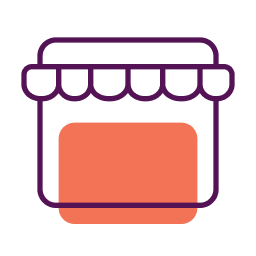Over the past few weeks we have spent time reviewing a number of different website builders to help you determine which one is right for your business. Each of these website building platforms offer ecommerce through their platform.
There is also a host of different platforms dedicated specifically to ecommerce and helping businesses build an online store, including Shopify, BigCommerce, and Magento. Most of these systems, however, have a much higher price tag than website builders. This is because of added security and fraud prevention, but also because the focus of an ecommerce site is to sell your items, there is a perceived worth and visible ROI, so users are willing to pay more having seen that value.
But what exactly sets these ecommerce platforms apart from website builder tools such as Squarespace and Weebly? Here are a few of the differences:
Application Integration
E-commerce website builders have hundreds of application add-ons for anything you could think of that your online store might need — marketing, sales, shipping, inventory management, upselling, discount codes, social media, customer service, and accounting, just to name the basics. Many of the apps are free, but there are paid apps as well. Here are a couple examples of these applications:
- Aftership (free): allows you to check all shipments and automatically send delivery updates to customers.
- Plug In SEO (Free): Checks your store for problems that might affect your performance on search engines.
- Sweet Tooth Loyalty Reward Points (free): helps you launch a reward points and referral program with your customers to keep them coming back AND telling their friends.
Website builders like Squarespace will offer basic tools but there’s not much in the way of application integration or store customization (yet). For example, you can track basic inventory with Squarespace and Wix, but with an ecommerce website builder like Shopify you can integrate applications with your online store that will: automatically remove 0 inventory items from your shop; allow customers to view where their delivery item is in real time; automatically reorder materials when your product inventory is low.
For information on more applications, check out Shopify’s app store.
Payment Systems & POS Integration
All of the website builders we reviewed had between 1 – 3 payment options, including Stripe, PayPal, and Authorize.Net. Ecommerce platform BigCommerce features over 40 different payment gateways available for sellers.
Ecommerce platforms offer POS systems either included in their service or as an application add-on. This allows you to integrate how you track inventory online and in store. If you sell your last gold charm necklace in store, an ecommerce platform can auto-update that information on your website to have the gold charm necklace listed as “out of stock.”
An Alternative: Let the Platform Market Your Products For You
If the products you plan on selling are hand-crafted or vintage, it might be worth taking a look at an e-commerce platform like Etsy, Artfire, or Bonanza. These sites allow sellers to post their unique products to the company page, and allow buyers to sift through yours and others products and buy what they want.
The biggest pro to selling on a website like this is the community you will reach without having to do much marketing. Etsy, for example, has a wonderful reputation and a huge community of both sellers and buyers interested in hand-crafted products. You can sell all over the world because of their international reach, and these platforms already include customer interaction built in — it supports customer ratings and reviews, and customers can “favorite” your shop or your items.
The cons to these ecommerce platforms are the flipside of the pros listed above. Etsy, Artfire, and Bonanza have great reputations so they feature many sellers — arguably just as many sellers as buyers. Be aware that your products can be crowded out by other similar shops, and to keep up with the competition you might have to spend more on advertising fees. There is also a lot less customization in terms of creating your “shop” page and adding other applications or even your own layout and designs.
The cost of ecommerce sites like Etsy and Bonanza is a transaction fee on purchases, rather than a monthly fee to use the platform. For Etsy, this fee is $0.20 to list a product and 3.5% fee on each item sold. Assess what kind of seller you are and how much you plan to sell to decide if this is advantageous for you or not.
So, is an Ecommerce Platform Worth It?
If any of the above features sound like something you might need to sell your business’s items online, then an ecommerce platform is worth looking into. If the main focus of your store will be online sales, then an ecommerce solution is probably worth the extra cost that it will be above a typical website builder with built in ecommerce.
If you plan to sell online but your business is characterized by one of the following, then a website builder is probably sufficient for your business:
- I won’t be selling many products online. If the number of items you are selling online is easy to manage without much automation in the way of inventory management, the basics offered with a website builder tool will likely suffice for your online shop.
- I don’t need much store and checkout customization. If the applications listed above and in Shopify’s application store don’t sound like things you will use for your online shop, then there’s no need to pay for the pricey ecommerce platform plan.
- I plan to make regular blog/content posts on my business website. Website builders like Squarespace and Weebly make it incredibly easy to add new content to your page, and and you can make that content the feature of your website. With an ecommerce platform, the “blog” section of your website will always come second to the products in your online shop.
Even if you already have an existing ecommerce solution, take a step back and really consider your options!
This article was originally written on April 22, 2015 and updated on February 2, 2021.



Both are same as per my opinion because both provide same service but the website is need pramotion singly or uniquely. in the case of Ecommerce store it is bunch of store where people surf easily & can find The Product easily so people are preffer the ecommerce sites so in current time the most vendors are interested in Ecommerce platform which is provided by different companies like buildbazaar, themejungle, amazone, shopify, wix & many more so vendor can create their own store online easily at lowest cost